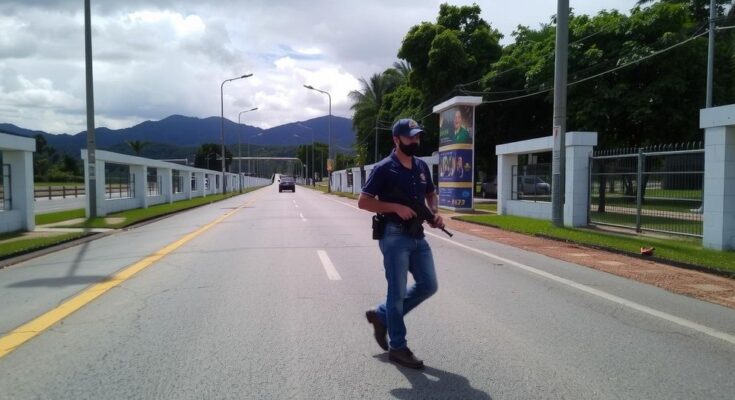Colombia will send Ambassador Milton Rengifo to Nicolás Maduro’s inauguration, but President Gustavo Petro will not attend, citing concerns over electoral legitimacy and human rights violations. Colombia is strengthening border security in response to potential unrest, while protests against Maduro’s regime are planned globally, led by opposition figures. The political tension between Petro and former President Duque exemplifies the divided responses to Venezuela’s dictatorship.
Colombia’s President Gustavo Petro has appointed Ambassador Milton Rengifo to represent Colombia at Nicolás Maduro’s inauguration for his third term in Caracas on January 10. However, President Petro will not attend, denouncing the election as illegitimate due to the prevailing blockades and referencing the recent arrest of an advocate for press freedom as a reason for his absence. Despite criticism from various political factions regarding the Ambassador’s attendance, Petro emphasized that maintaining diplomatic relations with Venezuela is crucial, contrasting his approach with that of former President Iván Duque, who had a more confrontational stance.
In anticipation of potential disturbances during Maduro’s inauguration, Colombia is enhancing its security across border regions, particularly in areas affected by armed groups such as FARC dissidents and ELN guerrillas. The deployment includes 3,700 soldiers and the establishment of a unified command post for monitoring activities, while local authorities have imposed restrictions, including a temporary ban on alcohol sales. Simultaneously, global protests against Maduro’s regime are expected, led by opposition figures who label this moment as pivotal for Venezuela. Opposition leader Edmundo González, who won a significant portion of the recent popular vote, is set to arrive in Caracas closely following Maduro’s inauguration, amid threats issued by Venezuelan authorities targeting him and accompanying former presidents.
The political landscape between Colombia and Venezuela has been complex, marked by divergent approaches to diplomacy and governance. Nicolás Maduro’s regime has long been criticized for its authoritarian practices, while Colombia has fluctuated between conflict and engagement with its neighbor. President Gustavo Petro’s recent positioning, contrasting with the prior administration of Iván Duque, has sparked debate over the appropriate diplomatic approach. As Venezuelan citizens express dissent, the tension on the border is heightened by the activities of armed groups, necessitating increased security measures in Colombia.
In summary, the impending inauguration of Nicolás Maduro, coupled with global protests and Colombia’s nuanced diplomatic stance under President Petro, marks a critical period in South American geopolitical relations. The actions taken by Colombia, including enhanced security and maintaining diplomatic ties, reflect a proactive approach to a deeply entrenched conflict while also acknowledging the risks presented by the current regime in Venezuela. The responses from both current and former Colombian leaders highlight the ongoing political divisions over how best to engage with Venezuela.
Original Source: thecitypaperbogota.com




